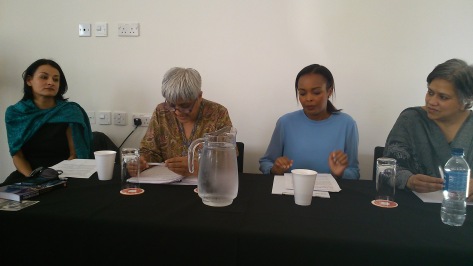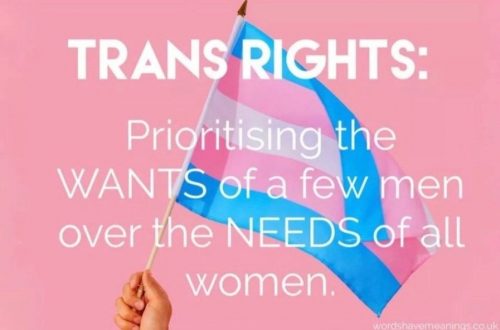This is a cross-post by Iram Ramzan

l-r Sandhya Sharma, Pragna Patel, Amal Farah and Gita Sahgal
“It’s women who have to take up these issues. The left is not going to do it. The left are trying to silence us.”
You would be forgiven for thinking this statement was made quite recently. In fact, it is made by one of the women who appeared in ‘Struggle or Submission’, which documented the beginnings of Women Against Fundamentalism (WAF).
WAF was set up partly in response to the controversy surrounding Salman Rushdie’s The Satanic Verses, but also with the aim of challenging fundamentalism in all religions.
Human rights activist and co-founder of Southall Black Sisters Gita Sahgal made the documentary, which filmed women working and living at a women’s refuge in Brent, who wanted the choice to practice, or not practice, the faith which they were born into. Many of the Muslim women wanted to follow their own interpretations of Islam without any interference from male clerics – a debate that still continues to this very day. Some of those women could not understand how young women were taking up the veil after decades of fighting for the right to remove it.
The documentary was shown as part of an International Women’s Day talk at Central Library in Manchester, titled ‘Women Against Fundamentalism – Stories of Dissent and Solidarity’. It showed a group of women from all backgrounds marching in support of Rushdie as part of their own right to religious control, at a time when race made way for religion in identity politics. They were attacked by both the religious fundamentalists and the fascists simultaneously.
The three speakers were co-founders of SBS, Pragna Patel and Gita Sahgal, and Amal Farah, an ex-Muslim from Somalia. Sandhya Sharma, a Manchester-based activist, chaired the discussion.
How fitting that these women were talking about their challenges against both religious fundamentalists and racists alike while an EDL march was taking place in the city centre.
Pragna said that WAF predicted the rise of religious fundamentalism.
“We don’t take pleasure in the fact that we were right in our predictions,” she explained. “Everything we will say has already been said 25 years ago.”
Do read the rest of Iram’s post here.


